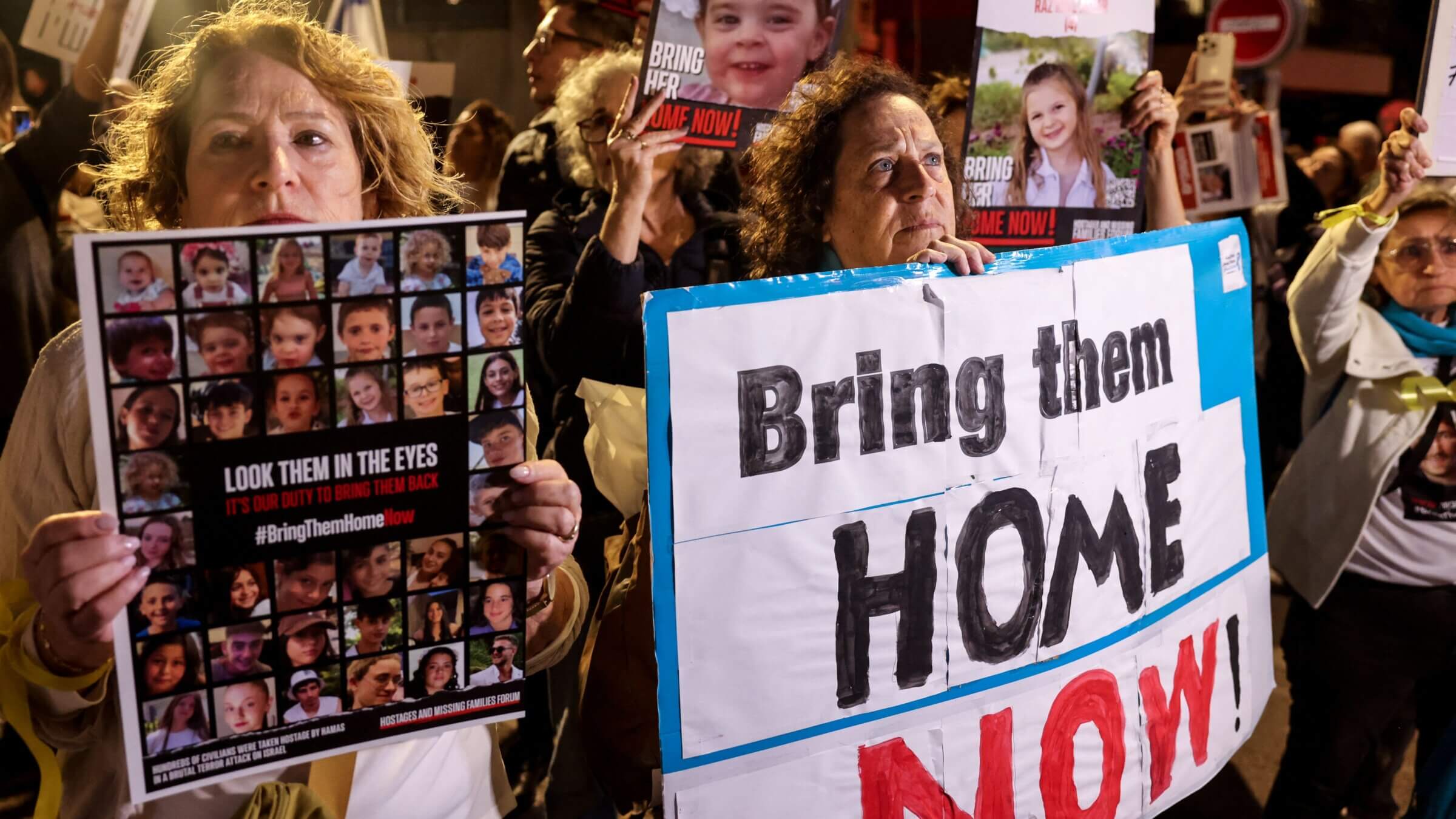Israel must save the hostages at any cost
The Israeli government has a moral responsibility to get our people back from the hands of the murderous Hamas regime

Protesters lift placards during a rally outside the Unicef offices in Tel Aviv on Nov. 20 to demand the release of Israelis held hostage in Gaza since the Oct. 7 attack by Hamas terrorists. Photo by AHMAD GHARABLI/AFP via Getty Images
The Israeli government has just approved a deal with Hamas (through Qatar as an intermediary) to release approximately 50 Israeli hostages kidnapped in Gaza over the course of several days. Prime Minister Netanyahu also shared that, as part of the deal, the Red Cross will see all hostages and treat them if necessary.
In exchange, Israel will release 150 Palestinian prisoners held in Israeli jails and agree to a temporary ceasefire while these hostages are being exchanged.
While I’m sure this deal will have some resistance among those who claim it is too high of a price to pay, the Israeli government has a moral responsibility to pay any price to get our people back from the hands of the murderous Hamas regime.
The politics of prisoner swaps
Releasing Palestinian prisoners has always been a contentious issue for Israelis. This is especially true now, when we now know that one of the main architects of the Oct. 7 attack, Mohammed Deif, was released as part of the deal that brought back Gilad Shalit in 2011.
While the swap will not include any prisoners who have been convicted of murder by Israel, concerns over releasing Palestinian prisoners with blood on their hands, or those who could wreak havoc against Israeli civilians in the future, are entirely reasonable.
But some politicians are making these concerns even worse by exploiting those fears for their own political purposes. Just yesterday, Minister Itamar Ben-Gvir from the extremist Otzma Yehudit party held a hearing in the Knesset to discuss legislation regarding giving the death penalty, almost never used by Israel, to terrorists.
Several families of the hostages begged him to stop, and left the room in protest as they claimed, rightly so, that having these debates right now risks the lives of their loved ones that are held captive by the savages of Hamas.
This is an obvious truth. But politicians like Ben-Gvir, who put party before country, couldn’t care less.
At the same time, no price is too high to pay for the safety of our people and to bring them back alive. The terrorists know this is part of our DNA, and take advantage of it as often as they can.
The hard truth is that the Israeli government and defense establishment already failed to protect their people, including the 1,200 who were killed by Hamas, the hostages and their families, from the start. Bringing back the hostages alive is the least they can do.
And when I say whatever the price, I mean it. This is not a fringe view. Recently, Shaul Mofaz, a hawkish retired politician who was both the IDF chief of staff and later the defense minister, said in an interview on Israeli television that Israel should be open to releasing all Palestinian prisoners in Israeli jails, including those with blood in their hands, if that is a way of bringing back all the 240 hostages.
In other words, everything must be on the table.
Even if a deal might be controversial, it is our responsibility to reach one. And both Israelis and the Jewish diaspora should back it.
Hundreds of innocent lives hang in the balance. If we were the ones in their place — and it could have been any of us or our loved ones — this is what we would have expected from our leaders and from our people.
To contact the author, email [email protected]

















